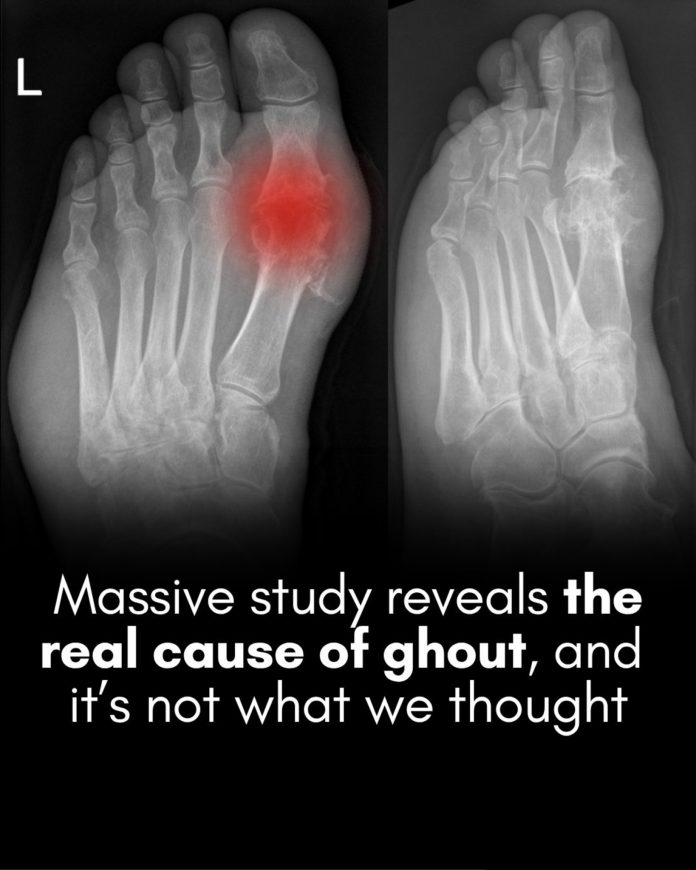For years, gout has been labeled as the “disease of kings,” primarily associated with overindulgence in rich foods and alcohol. Common advice often revolved around cutting back on red meat, shellfish, and wine to prevent painful flare-ups. But a massive new study is now challenging that long-standing belief, revealing that the true cause of gout may be far more complex — and surprising — than dietary indulgence alone.
Gout is a form of inflammatory arthritis that causes sudden, severe pain, redness, and swelling, typically in the joints — most often the big toe. It results from the accumulation of uric acid crystals, which form when there’s too much uric acid in the blood. The conventional wisdom has been simple: eat too many purine-rich foods (which raise uric acid levels), and you’re likely to get gout. But this new research sheds light on a deeper issue.

According to findings from this extensive study involving hundreds of thousands of participants, genetics may play a significantly larger role in determining who develops gout than previously believed. In fact, the data suggests that many people with gout may have inherited metabolic traits that make their bodies inefficient at processing and eliminating uric acid — regardless of what they eat or drink.
This discovery is a game-changer. It means that some individuals are predisposed to gout even if they follow a healthy diet, avoid alcohol, and maintain a healthy lifestyle. On the other hand, others may consume purine-rich foods their entire lives without ever experiencing a gout attack. The difference? How their bodies handle uric acid.
The study found that variations in certain genes related to kidney function and uric acid transport were strongly linked to higher uric acid levels. These genetic factors affect how efficiently the kidneys filter uric acid from the bloodstream and excrete it through urine. If the kidneys are less efficient, uric acid builds up — even if a person eats well.
What’s even more interesting is that lifestyle factors, while still important, might not be the primary drivers of gout risk as once assumed. This doesn’t mean diet doesn’t matter — it does. Foods high in purines can still trigger attacks, especially in those already genetically prone to the disease. However, this new evidence suggests that managing gout effectively may require more personalized approaches that take into account an individual’s genetic profile.
So, what does this mean for those suffering from gout or at risk?
For one, it opens the door to more targeted treatments. Rather than solely focusing on dietary changes, future gout management might include genetic testing to identify patients with specific metabolic risks. This could lead to more effective use of medications that lower uric acid production or enhance its excretion.

It also shifts the narrative away from blame. Many gout sufferers have long felt shame or guilt for their condition, believing it was caused solely by poor choices. Now, they can understand that their biology might be playing a bigger role than their behavior, and that they are not entirely at fault.
In conclusion, this groundbreaking study challenges outdated assumptions about the root causes of gout. While diet still plays a role, genetics and metabolism appear to be the hidden drivers behind this painful condition. With this new understanding, there is hope for better treatment options, less stigma, and a future where gout can be managed more effectively and compassionately.

















